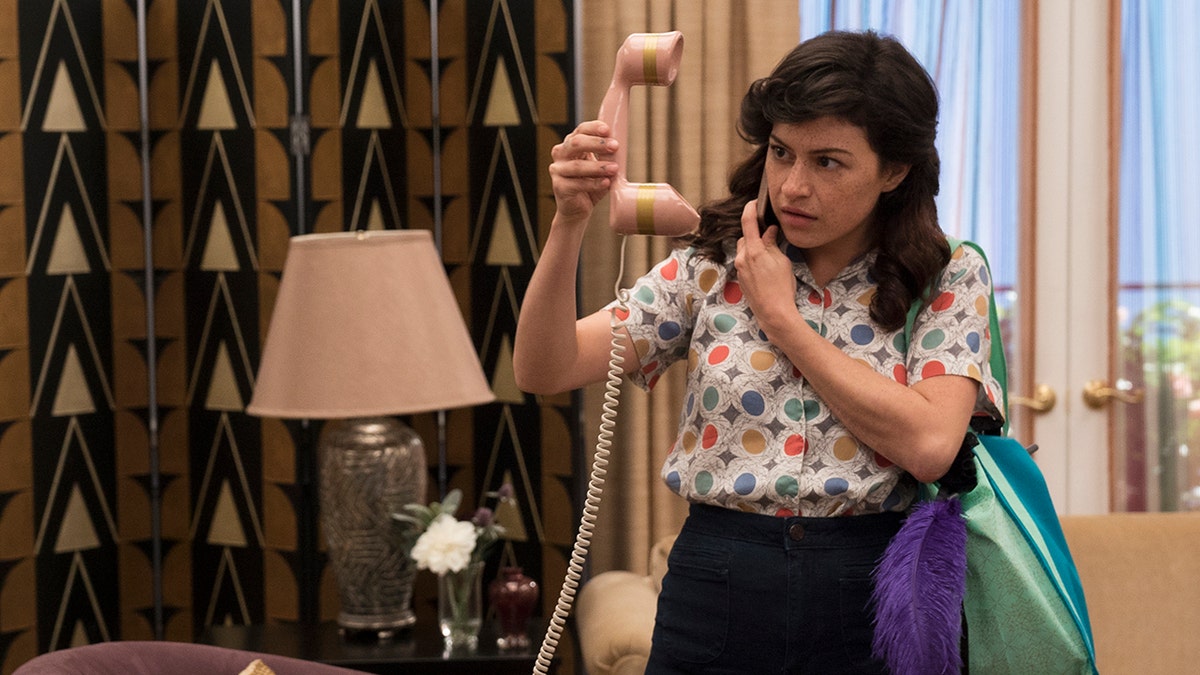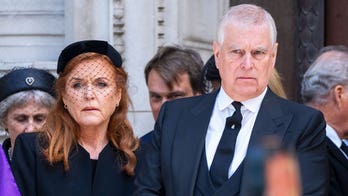
Alia Shawkat is pictured in a scene from the new season of "Arrested Development." (Netflix.)
Alia Shawkat wished she had said more when her male “Arrested Development” co-stars defended Jeffrey Tambor to the New York Times. Now she is.
“Once Jeffrey answered [with] his rote response, the other men in the room started to be a lot more verbal than they had before,” the actress, who plays Maeby Funke on the series, told Broadly. “They started going on about how they support Jeffrey, and they love him, and he’s a great actor—all these things that I agree with; I care about Jeffrey and I think he’s a great actor. But what continued to go on was, in my opinion, too much.”
As Jason Bateman, David Cross and Tony Hale excused Tambor for verbally harassing co-star Jessica Walter, saying everyone has angry moments, Shawkwat, 29, interjected, saying, “But that doesn’t mean it’s acceptable.” Shawkat remained relatively quiet afterward, having felt the shift in the room.
“They were almost trying to cover themselves up while simultaneously talking, instead of actually listening to each other—which is the biggest theme that I learned from this whole experience, this 20-minute interview that made so much noise,” she continued. “The minute Jessica started crying, my instinct was just to go up to her and hug her and be like, ‘This interview’s over.’”
Like Walter, Shawkat cried after the interview ended.
“I felt like I didn’t say enough to defend her. I felt like I didn’t say enough to explain that the movement is so important—and that Jeffrey’s story is a piece of this movement, and we can’t silence it,” she said. “Women’s voices need to be heard, and, ironically enough — I wasn’t able to be heard. I was really scared that the interviewer didn’t even hear me.”
When the interview went viral, Bateman, Hale and Cross all apologized for what they had said and how they treated Walter and Shawkat.
“I’ve known these people for 15 years; I was a child when I met them,” she said. “For the most part, they still have seen me as a little girl.”
“For the first time as a woman, through this awkward scenario, I finally had their ears to say, ‘This is how I felt, and this is what I want, and this is what I believe in.’ I think they were hurt to realize they had not been aware of that,” Shawkat continued. “They were all very sincerely apologetic, as well as surprised.”
Despite finding strength in the aftermath, the actress admitted she’s still working on finding her voice.
“In that room, when I look back on it, I wish I was able to gather myself, to not be afraid to speak out more and realize that I wouldn’t be hurting anybody—but actually helping,” she said. “I know I said a little, but what I wish I had said was, ‘Stop talking. Stop. Jessica, go on.'”
This article originally appeared in the New York Post's Page Six.














































